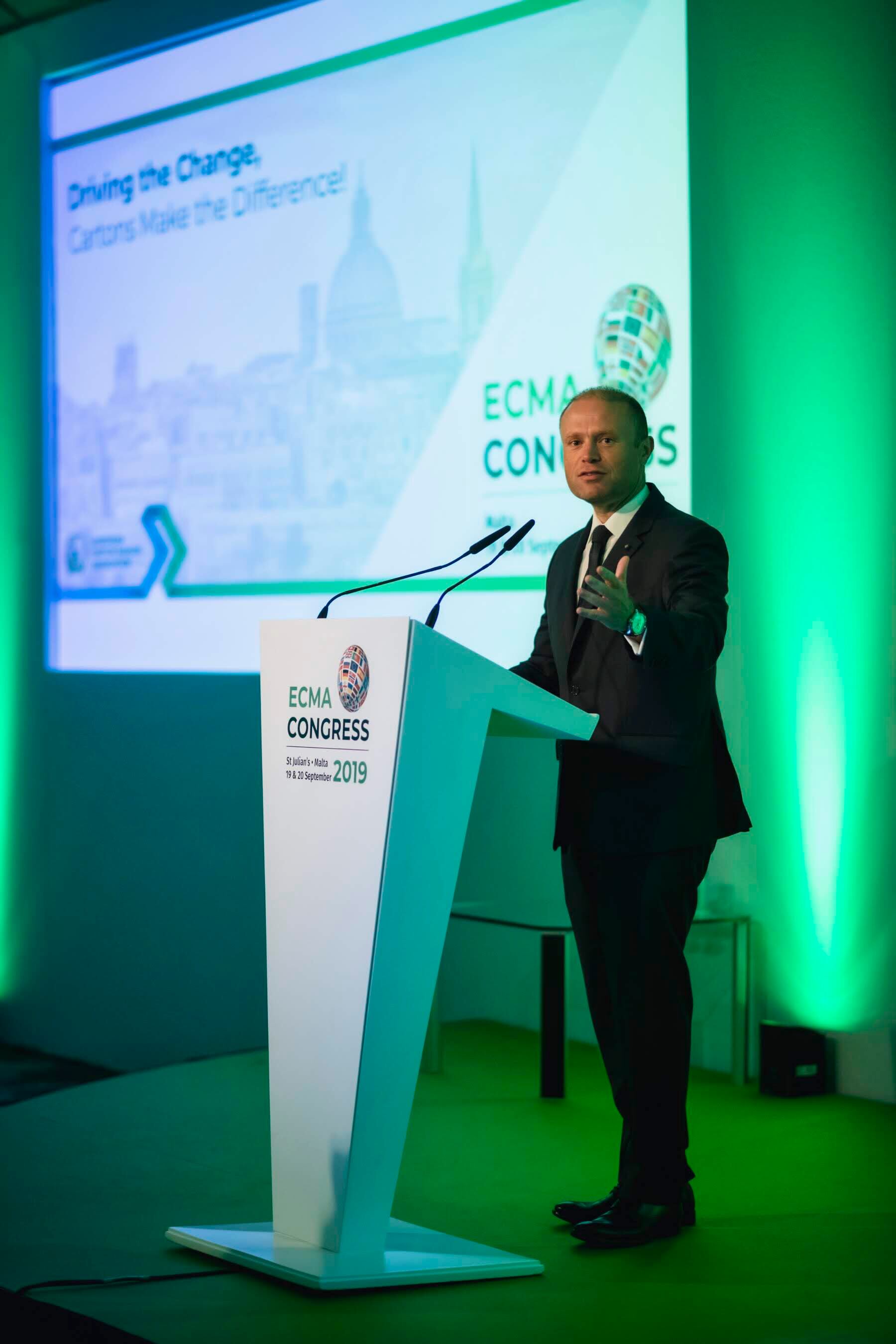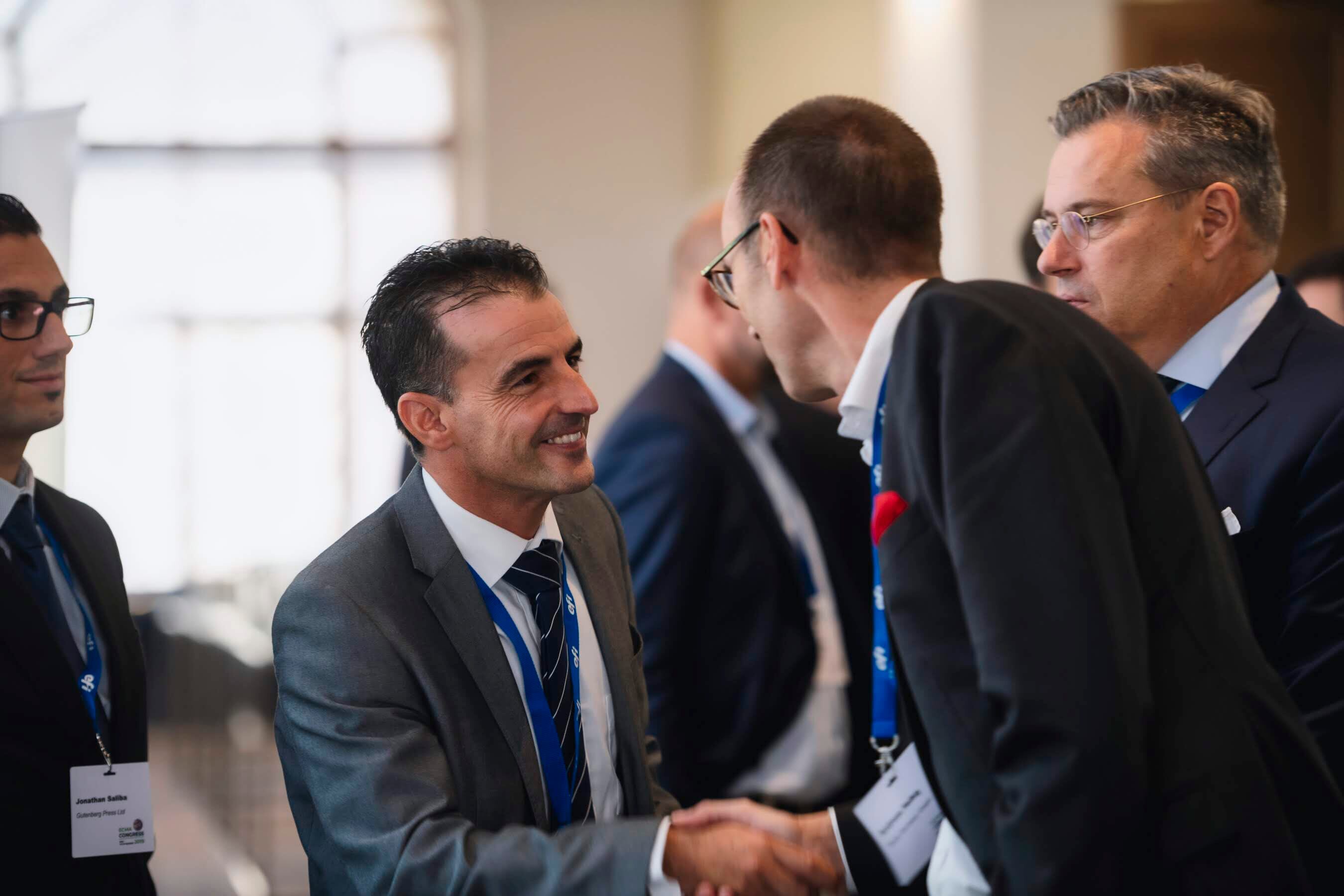Muscat said there needs to be ‘a willingness on all sides to try to come up with a useful solution’, and he is still positive of the outcome.
No Deal

“Having said that, I’m worried about the fact most companies have not prepared themselves or re-evaluated their position if a ‘No Deal’ takes place,” he added.
“I get the impression we were more prepared for the Millennium Bug than Brexit. If there is a No Deal, I would compare it in some ways to the Millennium Bug and hope it is a ‘much ado about nothing’, but each and every one of us must be prepared.”
The Millennium Bug (also known as the Y2K bug, Y2K glitch, or Y2K) refers to a class of computer bugs related to the formatting and storage of calendar data for dates beginning on 1 January, 2000.
When complex computer programs were first written in the 1960s, engineers used a two-digit code for the year, leaving out the "19." As the year 2000 approached, many believed the systems would not interpret "00" correctly, causing a major glitch in the system.
Thankfully, the bug resulted in comparatively minor incidents that were largely fixed within hours. Most problems were isolated to temporary failure of IT services, such as card services at the HSBC bank or the US Naval Observatory displaying 1 Jan 19100 on its website.
Dr José Herrera, Minister for the Environment, Sustainable Development and Climate Change, Malta, joined Muscat at the ECMA Congress to talk about the importance of sustainability and what the country is doing in terms of being an island in the Mediterranean sea and a member state of the EU.
He said Malta was one of the first countries to adopt legislation dealing with sustainability and is expected to launch a Single Use Plastics strategy for public consultation this year.
The Maltese Government adopted the Sustainable Development Act in 2012 which led to a legislative framework which mandated Government to mainstream sustainable development in its policies.
Three years later, the global community came together and adopted one of the most ambitious Agendas the United Nations has ever agreed upon; of committing each and every State to implement a set of 17 Sustainable Development Goals (SDGs) so that by 2030, the world will reach a state of prosperity, protection, and dignity, for both citizens and the planet.
Malta has embraced the 2030 Agenda and Malta’s Voluntary National Review (VNR) is an opportunity for Malta to share its endeavours with the international community in terms of SDG implementation
Herrera said Malta’s VNR covers all 17 SDGs, with some being reviewed in more detail than others, depending on their relevance for Malta and data/input available. The VNR follows a simple process, starting by an overview of Malta’s country profile to place the SDGs in a specific country-context.
The VNR provides an overview of Malta’s policies in the field of sustainable development. A supplementary section provides an introduction to the Government’s ongoing plans to launch Vision 2050.
The Vision 2050, still in draft form and will offer guidelines towards long-term sustainable development in Malta, whilst integrating the 2030 Agenda by offering a framework for the mainstreaming of sustainable development across all levels of Government.
Once adopted, Vision 2050 will offer long-term guidelines towards more efficient resource utilisation and the long-term management of and investment in human, social and material resources, which is particularly relevant for Malta’s specific country context.
Circular Economy
Its SUP strategy will have 23 measures at reducing single use plastic consumption, providing economic instruments such as incentives and disincentives, measures on separate waste collection and raising awareness.
One of the points of the strategy is to raise awareness on the effects of single use plastics, and to promote their alternatives and follows the work done by the European Commission in its move towards a circular economy. The strategy also protects against plastic pollution and to reduce litter from such products.
The strategy will give prominence to reducing the use of the top 10 used single use plastics in the EU which includes plastic plates, balloons, beverage containers and bottles including cups and lids, cutlery, straws, stirrers and others.

Speaking about the challenges of running a business in Malta was Franco Portelli, head of international business, Gutenberg Press, a printing press and folding carton manufacturer.
PM Muscat said the printing sector in Malta has been steadily on the rise. Both in terms of employment and exports and the number of employees in the printing sector has increased by 23% in the last 24 months.
Portelli said the family-run firm which has two plants, exports over 70% of its turnover with plans to further expand its international business.
“One of the challenges of being based on an island is the need to be self-sufficient, without support and no back-up. You have to be able to produce, buy, deliver and convert orders without relying on a sub-contractor. Our founder bought two machines every time we needed one in case one broke down. As the company started growing we felt the pinch as market demands increased and raw material was not close at hand as well as shorter lead times,” he said.
“We also needed skilled people to drive our operations. An operator needs to be trained to use complicated machinery as well as being able to adapt to different market conditions and multi-task.
“Operating a quality printing press from an island with limited resources is tough. Throughout our development journey we have had to go that extra mile in offering a competitive price while being able to deliver orders on time.
“Being on the peripheral part of Europe the distance and transportation costs continue to be a challenge. We have to work for lower margins. Malta imports most of the things our people consume. Related to this challenge is lead times and lack of proximity to the market means we have keep extra stock and spare parts.
“Client demands have changed and within the manufacturing industry processes have become bespoke to customers’ needs and there are more board substrates on the market.Yet all the challenges have made us resilient, driven and focused on what we do.
“An entrepreneurship attitude is key, Government agencies have become an essential partner in terms of support and in terms of success, we always need to have an available approach, be passionate about what we do and take pride in the work we produce.”

